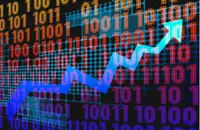SYDNEY: Australia’s unemployment rate remained stable at 6.2% in September, data showed on Thursday, with some analysts suggesting it may have peaked as the economy moves away from a dependence on mining.
The Australian Bureau of Statistics figures showed that in rounded terms, some 5,100 jobs were lost from the economy, with full-time positions falling by about 13,900 and part-time roles increasing by around 8,900.
The seasonally adjusted reading was better than analysts’ expectations of an increase to 6.3%, although the market was disappointed with the decline in the number of jobs.
In unrounded percentage terms, the data were more positive, with unemployment dipping slightly from 6.22% in August to 6.16% in September.
The Australian dollar slipped by a third of a US cent to 73.06 US cents.
“It’s moving in the right direction,” JP Morgan economist Tom Kennedy told AFP, adding that the latest unemployment figures reinforced positive readings from forward-looking labour force surveys. “We’ve probably seen the worst of it in terms of the rise in the jobless rate.”
The participation rate - which measures the proportion of adults in work or looking for work - eased from 65% to 64.9%.
The unemployment rate has fluctuated between 6%-6.4%, a decade high, over the past year as Australia emerges from an unprecedented mining investment boom that has helped the economy avoid a recession for 24 years.
The central bank has slashed interest rates to a record low of 2% to boost economic activity outside the resources sector, but such industries have so far been slow to fill the gap left by the fall in mining investment.
Despite this, the unemployment rate has yet to hit the 6.5% peak that the Reserve Bank of Australia forecast amid the transition to non-resources driven growth.
“Two per cent year-on-year employment growth is not bad,” Deutsche Bank’s Phil O’Donaghoe told AFP, adding that he expected the cash rate to remain unchanged for some months amid “reasonably robust” jobs growth.
The figures came as new consumer and business confidence indicators recorded modest rises after multi-millionaire former banker and businessman Malcolm Turnbull became prime minister when he ousted Tony Abbott in a party coup last month.
Turnbull has vowed to speak honestly about the economy and the headwinds facing it amid a slump in commodity prices and slowing growth in China, Australia’s largest trading partner.
Economist Justin Fabo of ANZ, which is forecasting the central bank to cut rates by 50 basis points in early 2016, said he expected the rate of jobs growth to slow on continued softness in the domestic and global economies. - AFP





